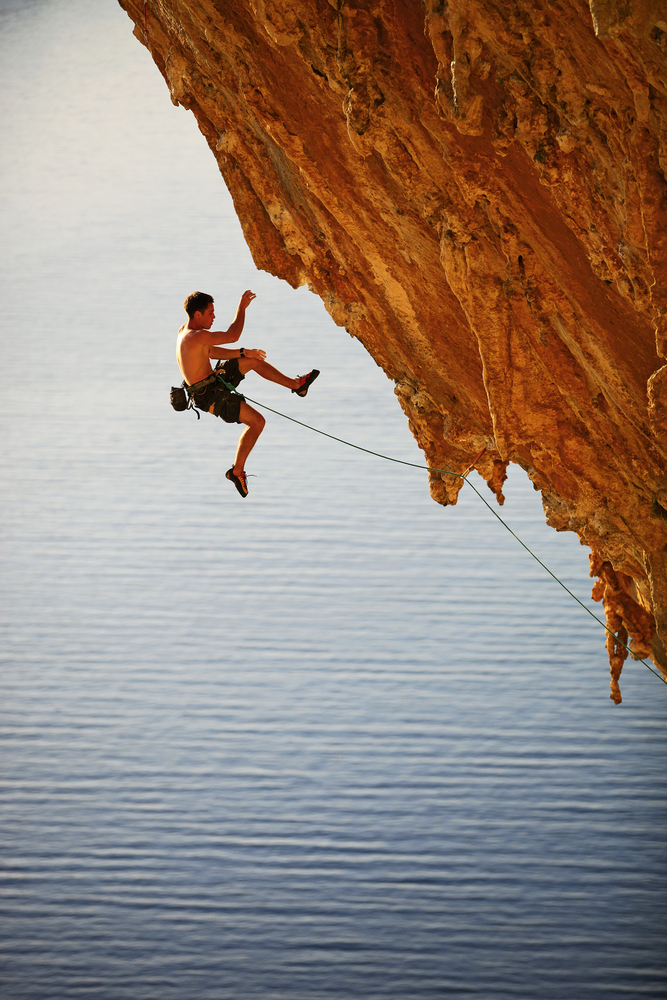07775 853 348


The psychology of climbing is such a broad subject. Ranging from the fear of falling, the fear of failure, the influence of negative thoughts and a self-image which can all affect your climbing and make it less enjoyable.

Does the psychology of climbing, i.e. any of the above mentioned topics, get in the way of your climbing? Then please read on.
“Almost regardless of their absolute level of achievement, when climbers operate at their personal limit they experience an emotional intensity, both elation and despondency, that exceeds all but the most ecstatic and traumatic events in ordinary life. During a climb all mental noise, all distractions, are eliminated and the mind focuses solely on the flow of climbing. For a short period of time all of the cares and concerns of the world disappear and all that is left is the climber and the mountain. The experience so vivid and taut that ordinary life can feel grey and flaccid in comparison.”
Simon Thompson, Unjustifiable Risk? The story of British climbing – 2010
For me, this is definitely one of the reasons I’m attracted to climbing. I find it a very therapeutic process. But to get to that stage, fear sometimes gets in the way.
One of the main reasons people’s full climbing potential is not reached is because of the fear factor within climbing, whether this is fear of falling, the fear of failure, a negative mindset, or a negative self-image. We may hesitate to make a move because we think we may fall off, hence we do not make the move and rest on the rope, or we make a half-hearted attempt to go for a particular hold because our brain has already decided that we will fall off. Or we overgrip as we feel out of our comfort zone, and seem to tire very quickly, hence failure is inevitable. Or we may not even attempt a climb as we know we will have to deal with the feeling of being uncomfortable.
Would it not be great to not have this fear, and to flow past these holds, because we know that we can make the move(s) really, or at least attempt them.
Below is only a brief description of what happens. A more in depth description can be found in my book “Climbing Psychology”.
Let’s first talk about fear. So, what happens when we get scared?

There are lots of different ways to deal with fear. Some of which are visualisation, breathing and positive self-talk to try and overcome the state of fear. There are lots of different strategies you can take on, which are detailed in the book Climbing Psychology, please see link below.
I have given a brief description of visualisation, breathing and positive self-talk below.
before we set off the ground, we try to visualise the moves, the hand holds, footholds, gear, clipping, etc… This mental rehearsal almost equates to having climbed the route, and can help with reducing the mental noise that happens during climbing.
focus on breathing. How many of us have climbed the crux, or topped out feeling slightly light headed?? This is because sometimes we tend to hold our breath, especially when climbing on our limit, or through the ‘scary’ part of a climb. Breathing helps with energy conservation, slows down the heart rate, and relaxes the muscles.
this is an obvious topic that does not need much explanation. If the fear is irrational (i.e. you are safe if you fell off, not talking about potential ground falls or marginal gear), use positive self-talk to remain calm, and prevent the fear from taking over.
The above is only a very simplified and incomplete representation of what really happens. If you would like to find out more, the book Climbing Psychology, explains the subject very well. This is available via the link below:
If you are interested in the psychology of climbing, or would like help with the fear of falling, please email us (info@riseandsummit.co.uk). We run workshops/courses on the above. We recently produced a book on the psychology of climbing: